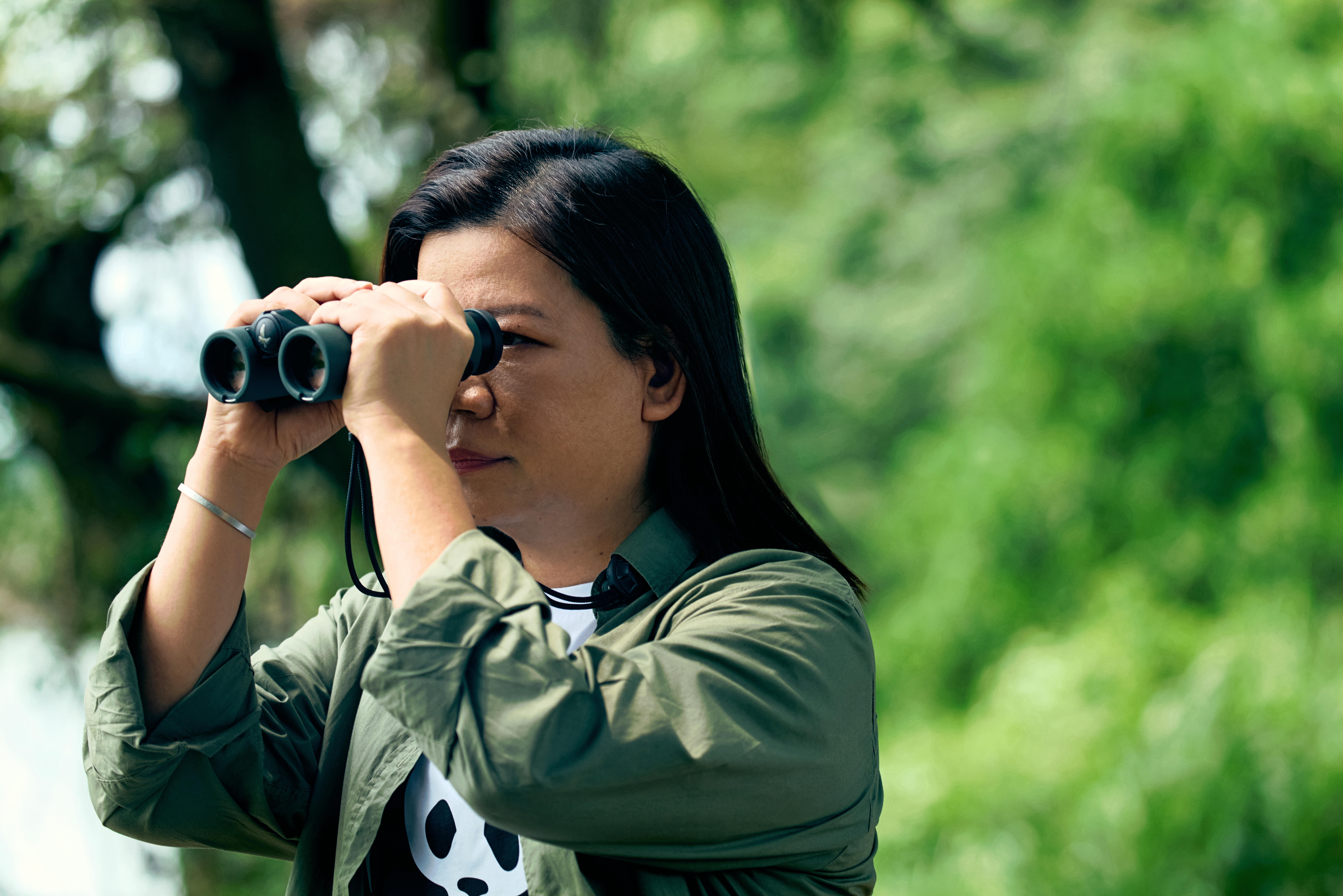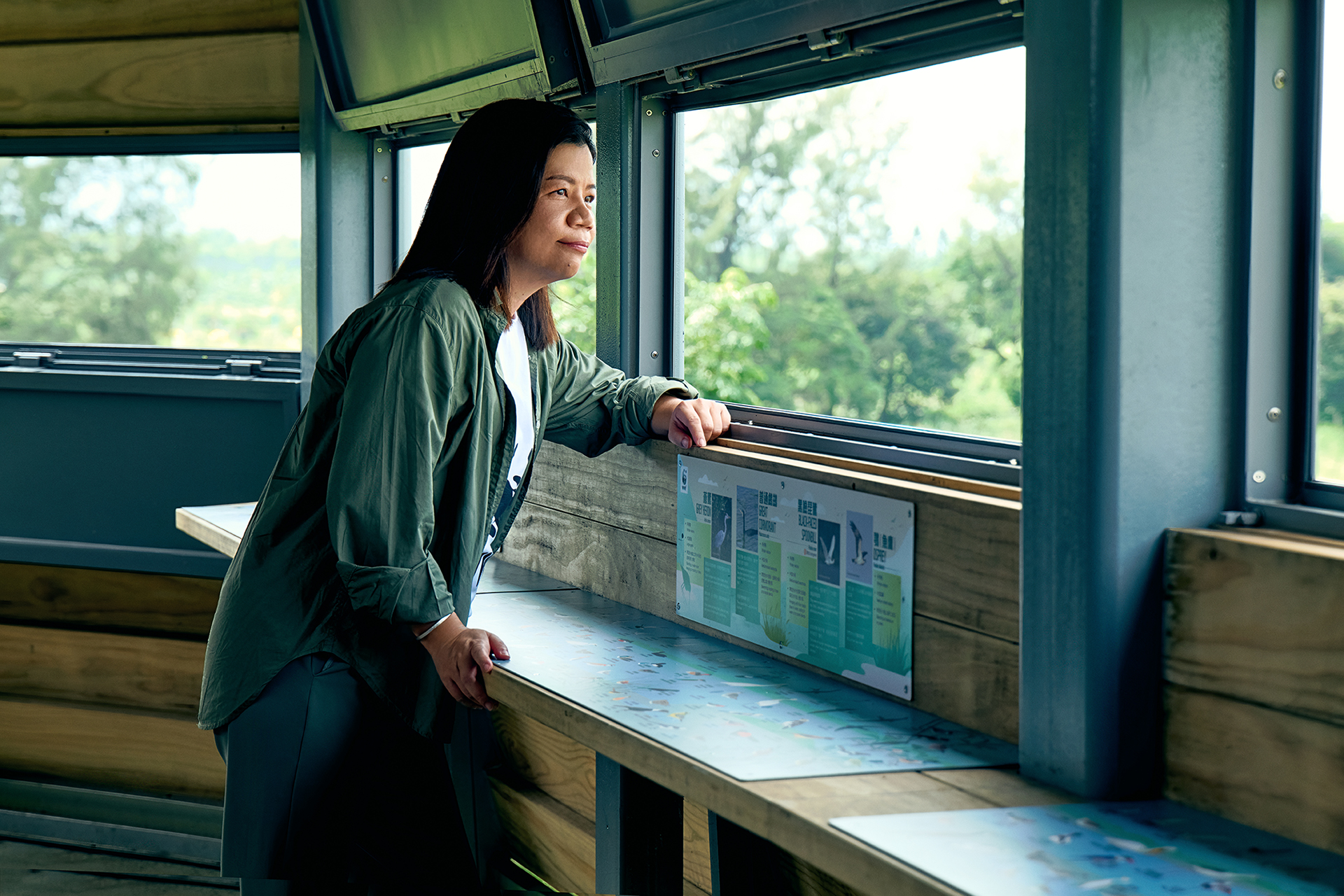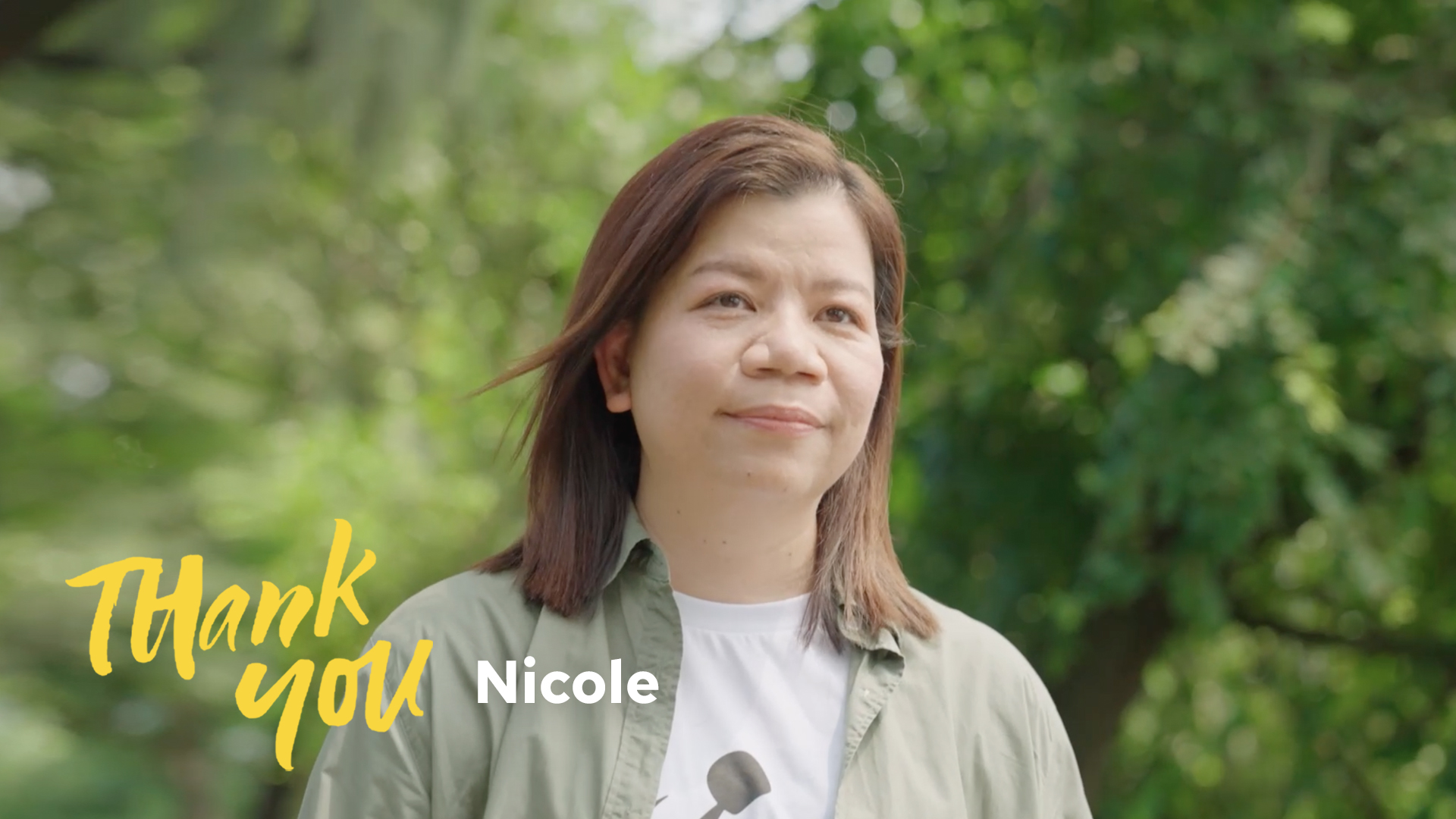How does a wetland in the bustling city of Hong Kong serve as a "hotel" for birds? For Nicole Wong, Chief Executive Officer of WWF-Hong Kong, the answer lies in the management and conservation efforts of the Mai Po Nature Reserve. Likening herself to a dedicated hotel manager, Nicole is committed to providing the best possible conditions for the tens of thousands of migratory birds that visit each year, ensuring they have a welcoming place to rest and rejuvenate before continuing their journeys.
On my first day working at Mai Po, I made my way to the bird hide, opened the window and saw countless birds taking flight. It was a spectacle unlike anything I had ever seen before. In that breath-taking moment, I realised the abundance of birdlife that can be found in Hong Kong.
While studying, I often spent time outdoors exploring Hong Kong's beautiful natural landscapes. This led me to fall in love with nature and inspired me to pursue a career in environmental conservation. I wanted more people to experience and appreciate the natural beauty that I loved so much.
More Stories: Joelle Wong | A second serve

I've always loved working with young people because you can witness firsthand how they grow and change. When young people develop an interest in something, they dive right in with a lot of enthusiasm. Some even spend their entire summer vacation conducting research at the Reserve, and these experiences can have a lasting impact on their lives.
The Mai Po Nature Reserve has been established for 40 years, and many of the facilities have gradually aged and can no longer meet current needs.
Fortunately, after receiving funding from The Hong Kong Jockey Club Charities Trust, we were able to upgrade and improve our facilities.
These improvements allow visitors to experience nature in a more ideal environment and enables professionals to conduct their research with better facilities.
One of the more labour-intensive parts of the job is managing the aftermath of extreme weather events. For example, after Typhoon Mangkhut, we took two hours to hike into the reserve, and then spent most of the day inspecting various ponds to identify fallen trees and assess the impact on the wildlife.

The completion of the new facilities within the Reserve is an achievement that the entire team takes great pride in.
I want to share a personal story that highlights this accomplishment.
After my former supervisor retired and returned to the UK, his daughter and grandson visited Hong Kong and stayed at
the WWF Jockey Club Mai Po Peter Scott Visitor Centre. A week later, I received an email from him expressing his gratitude.
He had been advocating for the renovation of these facilities for over a decade, and it was fulfilling for him to see this
dream finally realised through the dedication of our team. His grandson, after experiencing the excellent facilities,
decided to study ecology at university and pursue a career in environmental conservation.
My former supervisor was very influential on my career, and now, in turn, with his grandson being inspired by me it feels like the passing on of a legacy.

Lighting up the lives of "hard-to-reach" elderly

Fostering systemic transformation: start with individuals



